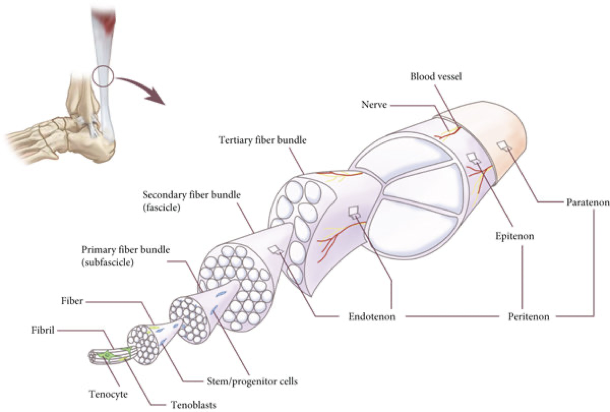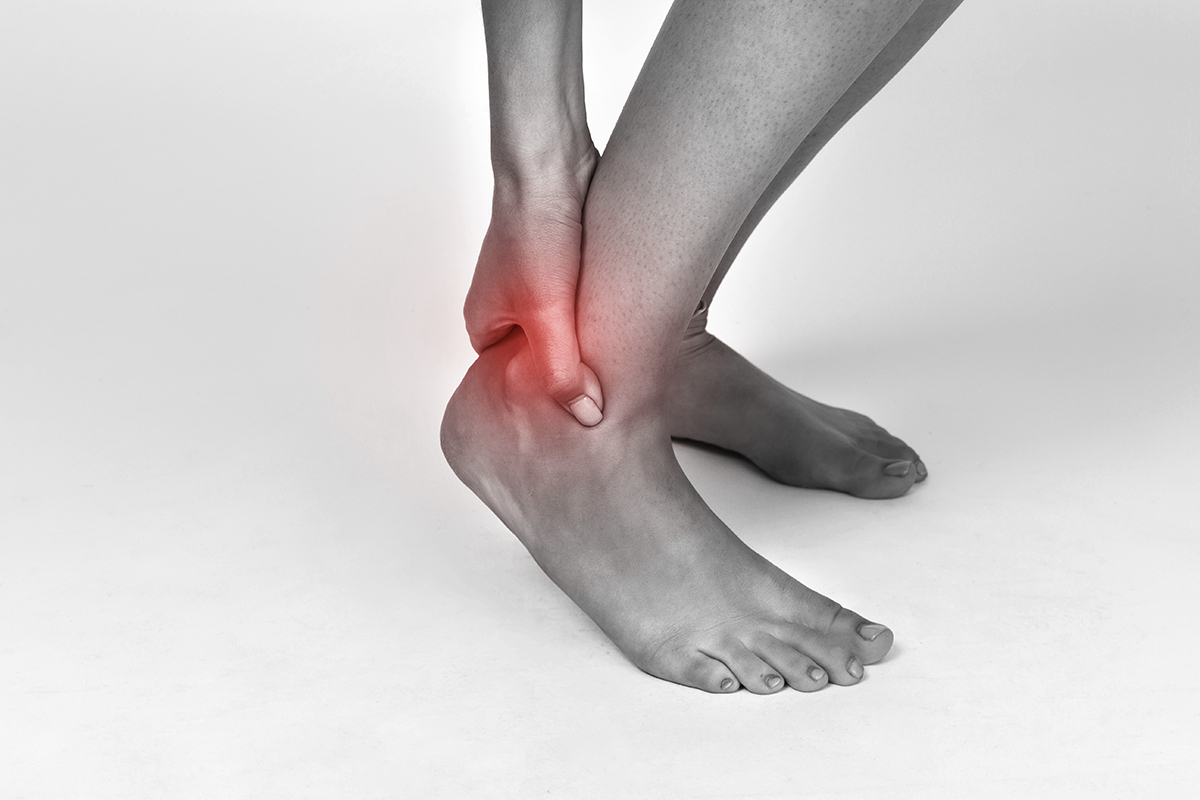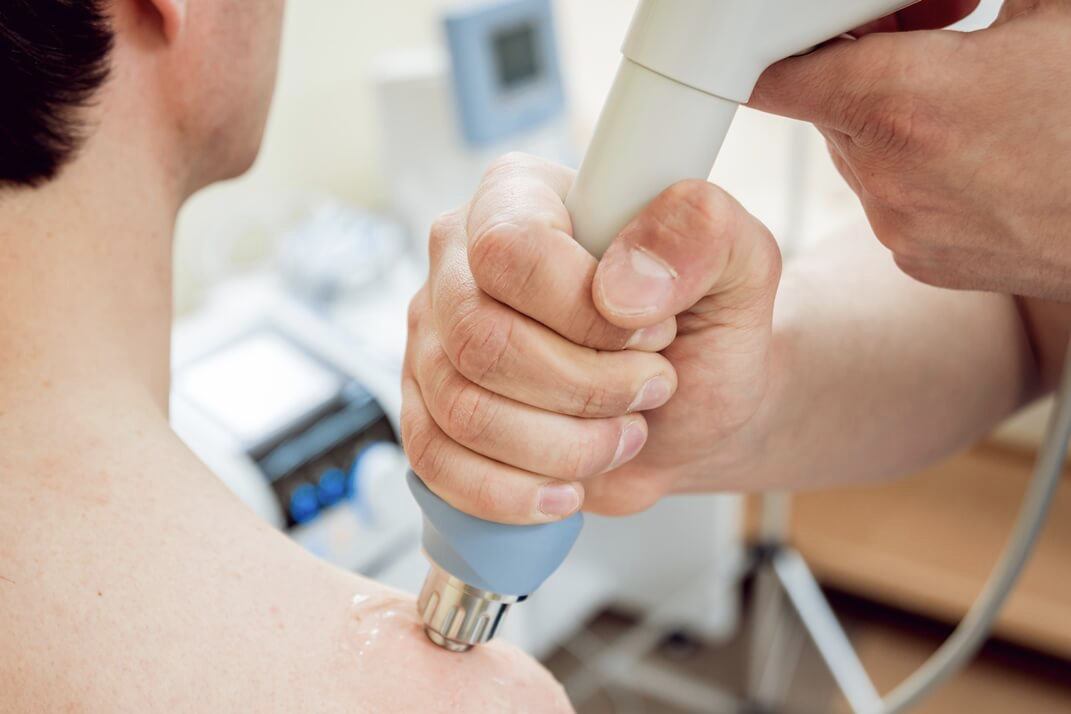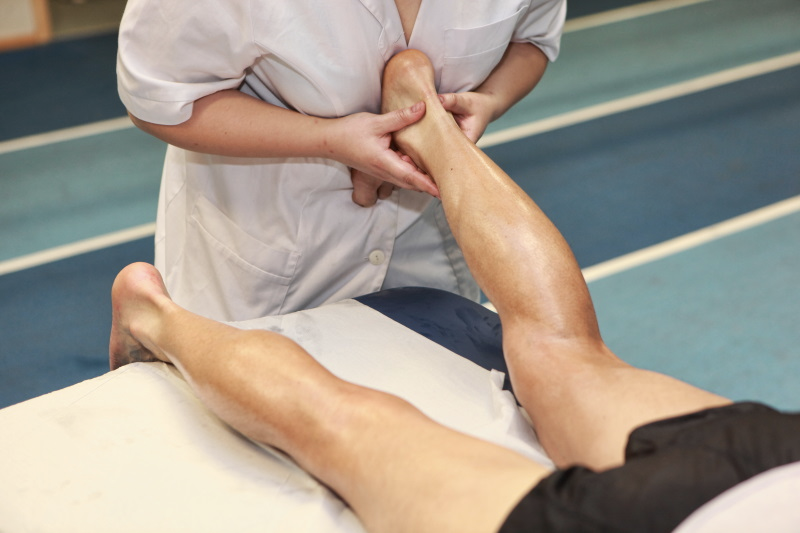In this month of South Simcoe Physiotherapy’s blog post, we are going to explore the world of tendinopathies – from what a tendon is, how a tendinopathy can occur, to how physiotherapy can help with rehabilitation.
What is a tendon?
Tendons are strong, fibrous connective tissues that serve as the crucial link between muscles and bones. When a muscle contracts, the tendon transmits this force to the associated bone, facilitating movement. Tendons are composed primarily of collagen fibers, which provide tensile strength and elasticity, allowing them to endure significant stress during physical activity. They are encased in a sheath that produces synovial fluid, reducing friction and enabling smooth motion. Tendons vary in size and shape, adapting to the demands of the specific body part they support, such as the thick Achilles tendon in the ankle or the delicate tendons in the hand.
While tendons are remarkably resilient, they can become vulnerable to injury due to overuse, aging, or other contributing factors. Their healing process is often slow because of limited blood supply, making preventative care and timely treatment essential.

What Are Tendinopathies?
Tendinopathy is a broad term encompassing both tendon inflammation (tendinitis) and tendon degeneration (tendinosis). While tendinitis refers to acute inflammation, tendinosis describes chronic tendon damage often resulting from overuse or repetitive strain. Common sites of tendinopathy include the Achilles tendon, patellar tendon (knee), rotator cuff (shoulder), and lateral epicondyle (tennis elbow).

Causes of Tendinopathies
Tendinopathies can arise from various factors, including:
-
- Overuse: Repeated stress on a tendon, often from sports or occupational activities, can lead to microtears and degeneration.
- Age: Tendons lose elasticity and strength with age, making them more susceptible to injury.
- Biomechanical Issues: Poor posture, improper technique, or muscle imbalances can increase tendon strain.
- Medical Conditions: Chronic illnesses such as diabetes and rheumatoid arthritis can contribute to tendon vulnerability.
- Medications: Certain antibiotics, like fluoroquinolones, have been linked to increased risk of tendinopathy.
Symptoms
The hallmark symptoms of tendinopathy include:
-
- Pain: Localized pain at the affected tendon, often worsen with activity.
- Stiffness: Especially in the morning or after periods of inactivity.
- Swelling: Mild to moderate swelling around the tendon.
- Weakness: Reduced strength or performance in the associated muscle group.
Diagnosis
Diagnosis typically involves a combination of:
-
- Medical History: Understanding the onset and nature of symptoms.
- Physical Examination: Assessing tenderness, swelling, and range of motion.
- Imaging Studies: Ultrasound and MRI can help identify tendon damage and rule out other conditions.
Treatment Options
Managing tendinopathy involves a multidisciplinary approach tailored to the severity and underlying cause:
1. Conservative Management
-
- Rest and Activity Modification: Reducing activities that aggravate symptoms.
- Physical Therapy: Focused on stretching, strengthening, and improving biomechanics. Physiotherapy plays a crucial role in managing tendinopathies. A trained physiotherapist designs a personalized program that may include:

-
-
- Eccentric Exercises: These exercises involve lengthening the tendon under tension and are highly effective in promoting tendon healing and strength.
- Stretching: Improves flexibility and reduces tension on the tendon.
- Manual Therapy: Techniques such as massage and mobilization to improve blood flow and tissue mobility.
- Biomechanical Assessment and Correction: Identifying and addressing factors like improper gait, posture, or muscle imbalances that contribute to tendon stress.
- Neuromuscular Training: Enhancing the coordination and activation of muscles surrounding the tendon for better support.
- Acupuncture and dry needling: Using this modality may help to increase blood flow to the tendon for healing, as well as help reduce pain
-

-
- Pain Relief: Nonsteroidal anti-inflammatory drugs (NSAIDs) or topical analgesics.
- Ice Therapy: Applying ice packs to reduce pain and swelling.
2. Advanced Interventions
-
- Corticosteroid Injections: May provide temporary relief but should be used cautiously.
- Platelet-Rich Plasma (PRP) Therapy: Emerging evidence suggests PRP may promote tendon healing.
- Extracorporeal Shockwave Therapy (ESWT): Non-invasive treatment that stimulates tissue repair.
3. Surgical Options
In severe cases where conservative treatments fail, surgical intervention may be necessary to remove damaged tissue or repair the tendon.
Prevention Strategies
Preventing tendinopathies involves proactive measures such as:
-
- Gradual Progression: Increasing activity levels slowly to avoid overuse.
- Proper Technique: Ensuring correct form in sports and daily activities.
- Strengthening and Flexibility: Regular exercises to maintain tendon health.
- Ergonomic Adjustments: Adapting workspaces and equipment to reduce strain.
Conclusion
Tendinopathies can significantly affect quality of life, but early recognition and appropriate management can lead to effective recovery. Whether you’re an athlete or someone dealing with repetitive strain, adopting preventative strategies and seeking timely treatment are crucial steps to maintaining tendon health.
If you have been suffering from tendon pain or have been diagnosed with a tendinopathy, start treatment today by contacting our Alliston or Tottenham Physiotherapy clinics, where an experienced physiotherapist will help you get better!
